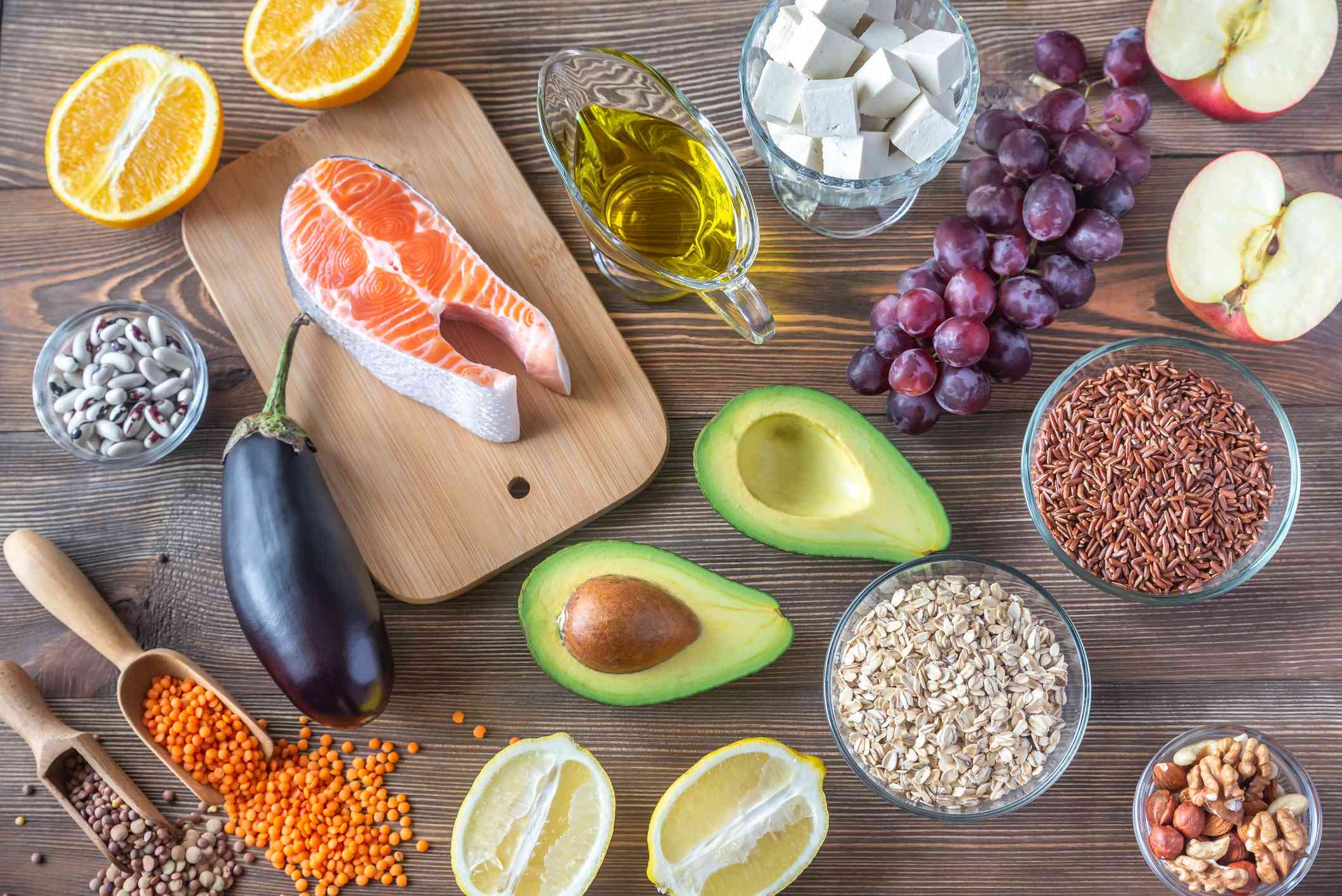Controlling High Cholesterol - Unlocking The Secrets To A Healthy Heart
A major threat to heart health, this silent killer frequently exhibits no outward signs of distress. Learning about and taking action to controlling high cholesterol is crucial for living a healthy and fulfilling life.
Author:Katharine TateReviewer:Karan EmeryFeb 20, 202411.3K Shares171.7K Views

Millions of people all around the world deal with the health risk of high cholesterol. A major threat to heart health, this silent killer frequently exhibits no outward signs of distress. Learning about and taking action to controlling high cholesterolis crucial for living a healthy and fulfilling life. In this article, we will discuss the significance of controlling cholesterol levels and provide easy ways to do it.
What Is Cholesterol?
Cholesterol is a fatty substance found in our cells and is crucial for building cell structures, producing hormones, and making vitamin D. It comes from our liver and certain foods, especially those from animals. Cholesterol travels in the blood attached to proteins called lipoproteins. There are two main types: LDL (low-density lipoprotein) and HDL (high-density lipoprotein).
Low-density lipoprotein, often called "bad cholesterol," carries cholesterol to cells and can build up in arteries, increasing the risk of heart disease. On the other hand, HDL, or "good cholesterol," helps remove excess cholesterol from the bloodstream, lowering the risk of heart issues.
Importance Of Controlling High Cholesterol
- Heart health - High cholesterol is a major risk factor for coronary artery disease (CAD) and other cardiovascular diseases. Elevated levels of low-density lipoprotein (LDL) cholesterol can lead to the buildup of plaque in arteries, restricting blood flow to the heart and increasing the risk of heart attacks.
- Stroke prevention - Cholesterol deposits in blood vessels not only affect the heart but also pose a risk for strokes. When plaque accumulates in the arteries supplying the brain, it can lead to a stroke by impeding blood flow.
- Atherosclerosis - Uncontrolled cholesterol levels contribute to atherosclerosis, a condition characterized by the hardening and narrowing of arteries. Atherosclerosis can lead to complications such as angina, peripheral artery disease, and increased susceptibility to blood clots.
- HDL cholesterol's protective role - High-density lipoprotein (HDL) cholesterol is often referred to as "good" cholesterol because it helps remove excess cholesterol from the bloodstream. Maintaining a balance between LDL and HDL cholesterol is crucial for preventing plaque buildup and maintaining arterial health.
- Overall health and longevity - Controlling cholesterol is integral to overall health and longevity. Managing cholesterol levels contributes to a healthier circulatory system, reducing the likelihood of life-threatening cardiovascular events.
- Lifestyle and dietary impact - Dietary choices and lifestyle habits play a significant role in cholesterol levels. Controlling cholesterol involves adopting a heart-healthy diet, exercising regularly, and avoiding habits like smoking that can negatively impact cholesterol balance.
- Preventive medicine - Proactively managing cholesterol serves as a form of preventive medicine, addressing risk factors before they lead to severe health issues. Routine monitoring and early intervention can help individuals make necessary lifestyle changes or take medications to control cholesterol effectively.
Risk Factors
Several risk factors contribute to the development of high cholesterol levels, increasing the likelihood of cardiovascular issues. Understanding these risk factors is crucial for proactive management and prevention. Here are key contributors to high cholesterol:
- Genetics - Family history plays a significant role in cholesterol levels. If close relatives have a history of high cholesterol or heart disease, individuals may be genetically predisposed to elevated cholesterol levels.
- Diet and lifestyle - Unhealthy dietary choices, such as consuming a diet high in saturated and trans fats, can contribute to elevated cholesterol levels. Excessive intake of red meat, full-fat dairy products, and processed foods may raise LDL (low-density lipoprotein) cholesterol.
- Age and gender - Cholesterol levels tend to rise with age. As individuals get older, their bodies may become less efficient at processing cholesterol. Before menopause, women typically have lower cholesterol levels than men. However, after menopause, women's cholesterol levels often increase, narrowing the gender gap.
- Obesity - Being overweight or obese is associated with higher levels of LDL cholesterol and lower levels of HDL cholesterol. Abdominal obesity, in particular, is a significant risk factor for unfavorable lipid profiles.
- Medical conditions - Certain medical conditions can contribute to high cholesterol. Conditions such as diabetes, hypothyroidism, and kidney diseases may affect cholesterol metabolism. Chronic inflammatory conditions can also influence cholesterol levels. Inflammation within the body may lead to increased production of LDL cholesterol.
- Smoking - Smoking is a risk factor for high cholesterol and cardiovascular disease. It not only lowers HDL cholesterol but also damages blood vessels, making it easier for cholesterol to accumulate.
- Alcohol consumption - While moderate alcohol consumption may have some cardiovascular benefits, excessive alcohol intake can contribute to high cholesterol levels. It's essential to consume alcohol in moderation.
- Medications and hormonal factors - Certain medications, such as corticosteroids and some diuretics, can raise cholesterol levels. Hormonal factors, including conditions like polycystic ovary syndrome (PCOS) and hormonal replacement therapy, may also influence cholesterol levels.
Foods To Help Control High Cholesterol
- Oily fish - Fatty fish like salmon, mackerel, trout, and sardines are rich in omega-3 fatty acids, which have been shown to lower levels of triglycerides and increase HDL (good) cholesterol.
- Nuts and seeds - Almonds, walnuts, flaxseeds, and chia seeds are good sources of monounsaturated and polyunsaturated fats. These healthy fats can help lower LDL (bad) cholesterol when consumed in moderation.
- Whole grains - Opt for whole grains such as oatmeal, brown rice, quinoa, and whole wheat bread. These foods contain soluble fiber, which can help lower LDL cholesterol.
- Fruits and berries - Berries like strawberries, blueberries, and citrus fruits are high in soluble fiber and antioxidants, which support heart health.
- Vegetables - Incorporate a variety of colorful vegetables into your meals. Vegetables are rich in fiber, vitamins, and minerals that contribute to overall cardiovascular health.
- Olive oil - Use olive oil as a primary cooking oil. It is high in monounsaturated fats and antioxidants, which can positively impact cholesterol levels.
- Avocado - Avocados are a nutrient-dense fruit that provides monounsaturated fats, which can help lower LDL cholesterol and raise HDL cholesterol.
- Legumes - Beans, lentils, and chickpeas are excellent sources of soluble fiber and plant-based proteins. Including legumes in your diet can contribute to lowering cholesterol levels.
- Fatty fish - Fatty fish like tuna, sardines, and salmon are rich in omega-3 fatty acids, which have heart-protective properties.
- Garlic - Garlic has been associated with potential cholesterol-lowering effects and may contribute to overall cardiovascular health.
- Green tea - Green tea contains antioxidants called catechins, which may have a positive impact on cholesterol levels.
- Plant sterols and stanols - Foods fortified with plant sterols and stanols, such as certain margarines, can help lower LDL cholesterol levels.
Controlling High Cholesterol - FAQ
What Are The Five Signs Of High Cholesterol?
You develop symptoms of heart disease, stroke, or atherosclerosis in other blood vessels, such as left-sided chest pain, pressure, or fullness; dizziness; unsteady gait; slurred speech; or pain in the lower legs. Any of these conditions may be linked to high cholesterol, and each requires medical help right away.
Does Ginger Reduce Cholesterol?
Studies have found that ginger can help reduce LDL cholesterol levels and improve blood sugar control. Additionally, ginger has been found to help improve circulation, which can help prevent the buildup of plaque in the arteries.
How Can I Lower My Cholesterol Quickly?
To reduce your cholesterol, try to cut down on fatty food, especially food that contains a type of fat called saturated fat. You can still have foods that contain a healthier type of fat called unsaturated fat. Check labels on food to see what type of fat it has in it.
Final Thoughts
The importance of controlling high cholesterol cannot be emphasized in the pursuit of good well-being. People can take control of their health and reduce the hazards related to high cholesterol by arming themselves with information and doable actions.
We lay the foundation for a heart-healthy future by embracing a comprehensive strategy that includes a balanced diet, frequent exercise, and wise lifestyle decisions. Managing cholesterol is within our grasp, enabling us to live happy, meaningful lives free from the specter of this imperceptible danger.

Katharine Tate
Author

Karan Emery
Reviewer
Latest Articles
Popular Articles
